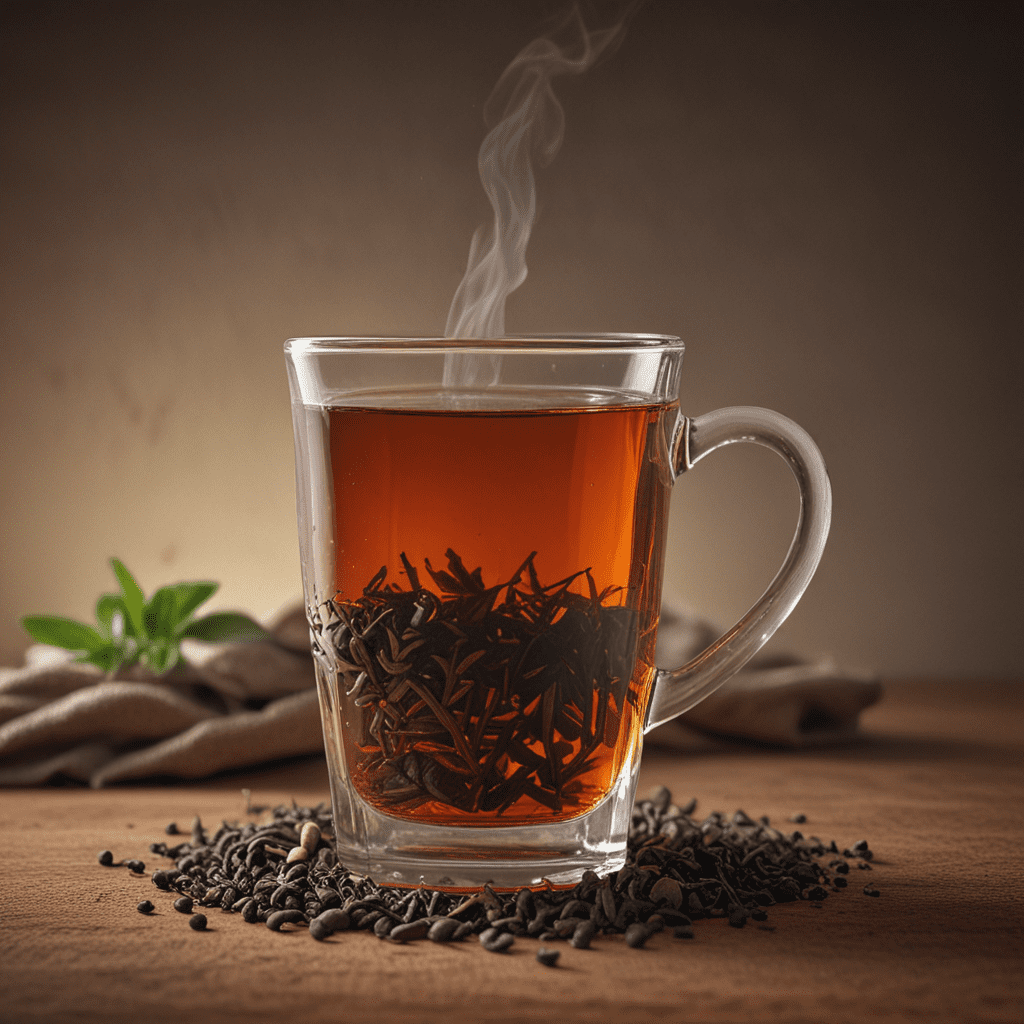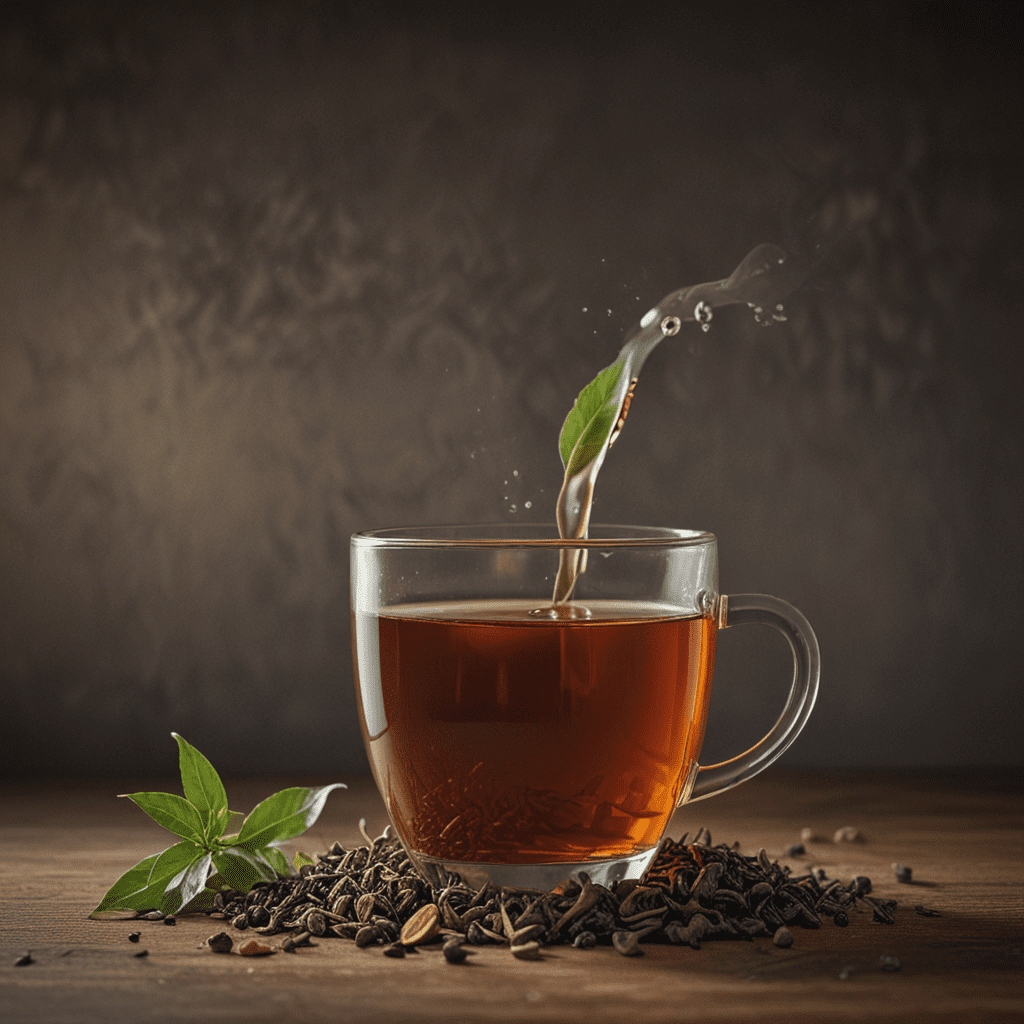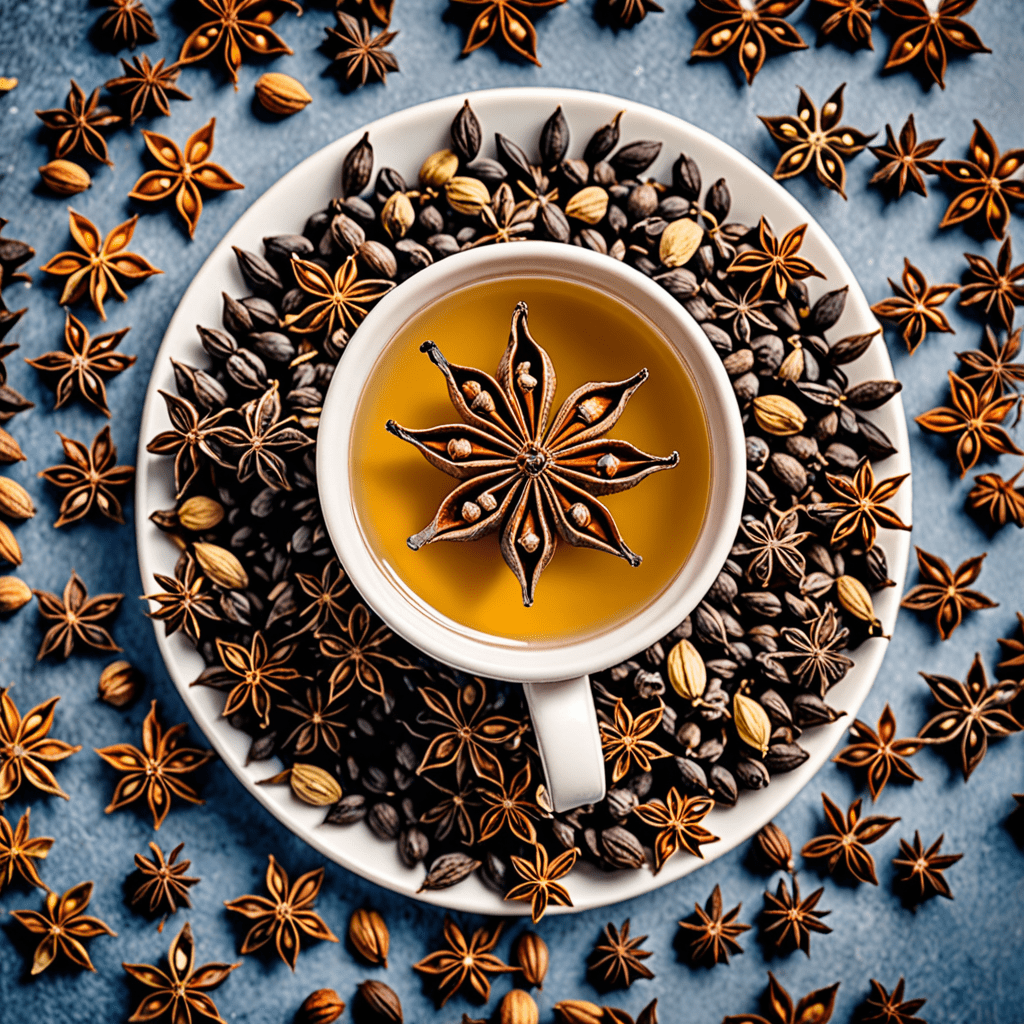Assam Tea: The Enchanting Black Gold
Assam tea, a celebrated variety of black tea, is renowned for its robust flavor, malty notes, and invigorating aroma. Originating from the lush Brahmaputra Valley in Assam, India, this tea has captured the hearts of tea aficionados worldwide.
Historical Roots of Assam Tea
The history of Assam tea dates back to the 19th century when British planters discovered wild tea plants growing in the region. Recognizing the potential of these plants, they established tea gardens and began cultivating them. Within a few decades, Assam tea gained recognition as a premium black tea and became an important export commodity for India.
The Unique Brahmaputra Valley: A Tea Haven
Assam tea owes its exceptional qualities to the unique geographical conditions of the Brahmaputra Valley. The warm and humid climate, coupled with the fertile soil enriched by the Brahmaputra River, provides an ideal environment for tea cultivation. The valley’s vast expanse of tea gardens, stretching over thousands of acres, is a testament to the thriving tea industry in the region.
Varieties of Assam Tea: A Kaleidoscope of Flavors
Assam tea encompasses a wide range of varieties, each with its distinctive flavor profile. Some popular types include CTC (crush, tear, curl), which is known for its briskness and strong malty notes; Orthodox, characterized by its full-bodied flavor and subtle astringency; and Green Assam, a relatively new variety with a delicate and grassy flavor.
The Subtle Art of Processing Assam Tea
The processing of Assam tea is an art form that has been passed down through generations. After harvesting, the tea leaves undergo a series of steps, including withering, rolling, oxidation, and firing. The oxidation process, which is crucial for developing the tea’s characteristic flavor, is carefully controlled to ensure optimal results.
Health Benefits of Assam Tea: A Therapeutic Elixir
Assam tea is not only a delightful beverage but also a source of various health benefits. It contains antioxidants that help protect the body from damage caused by free radicals. Assam tea is also believed to improve digestion, boost the immune system, and enhance cognitive function. Studies have shown that regular consumption of Assam tea may reduce the risk of chronic diseases such as cancer and heart disease.
Assam Tea Consumption Rituals: An Aromatic Tradition
Assam tea is an integral part of Indian culture and is typically consumed with milk and sugar. The tea is brewed in a teapot and poured into cups, where it is sweetened to taste. Assam tea is often enjoyed as a morning or afternoon beverage and is a popular accompaniment to meals. In some regions, it is also served with lemon or spices such as cardamom and cinnamon.
Socioeconomic Impact of Assam Tea: A Catalyst for Growth
The Assam tea industry has a significant socioeconomic impact on the region. It provides employment to a large number of people, both directly and indirectly. The tea industry also contributes to the local economy by generating revenue through exports and tourism. The development of the tea industry has led to improved infrastructure, education, and healthcare facilities in the region.
Assam Tea: A Global Ambassador for Indian Heritage
Assam tea has become a global beverage, enjoyed by people around the world. It is exported to over 80 countries and has gained recognition as a premium black tea. Assam tea is often used in tea blends and is also popular as a base for specialty teas. The tea industry in Assam has helped to promote Indian culture and heritage on a global scale.
Preserving the Legacy of Assam Tea: Sustainable Practices
Recognizing the importance of sustainability, tea plantations in Assam are adopting eco-friendly practices. These include using organic fertilizers and pesticides, conserving water, and promoting biodiversity. Sustainable practices help protect the environment and ensure the long-term viability of the tea industry in the region.
FAQ
What is the difference between CTC and Orthodox Assam tea?
CTC (crush, tear, curl) Assam tea is made from leaves that have been crushed, torn, and curled. This results in a tea that is brisk and malty. Orthodox Assam tea is made from leaves that have been rolled, resulting in a tea that is full-bodied and has a more subtle flavor.
What are the health benefits of Assam tea?
Assam tea is a good source of antioxidants, which help protect the body from damage caused by free radicals. It is also believed to improve digestion, boost the immune system, and enhance cognitive function. Regular consumption of Assam tea may reduce the risk of chronic diseases such as cancer and heart disease.
How is Assam tea typically consumed?
Assam tea is typically consumed with milk and sugar. It is brewed in a teapot and poured into cups, where it is sweetened to taste. Assam tea is often enjoyed as a morning or afternoon beverage and is a popular accompaniment to meals.



